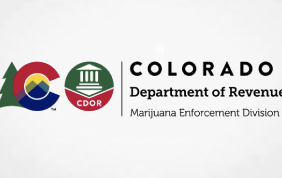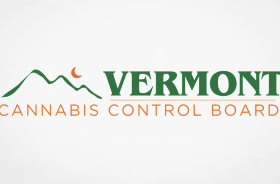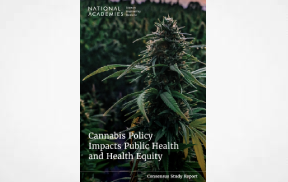AUTHORED BY: JORDAN ZOOT
Accounting, Attest, Tax, Regulatory Compliance and Technology
Evanston HQ [Chicago] – Oakland – New York
CPA.CITP.CISM.CGEIT.CGMA
Verticals: California Commercial Cannabis Industry, Alt. Investments/Private Equity, Real Estate, Professional Services, IRS Controversy, OPR Practitioner Represenatio and Distressed Assets/Debt
Technology :
Advanced & High Complexity Cloud Integrator
AICPA PCPS, CAQ, IMTA, CITP
ISACA CGEIT, CISM
Technologies & Platforms – with Certifications and Full Partner Program Members
Google Cloud Partner – G Suite, Education, Chrome, Android
Google Partners – Adwords & Analytics
Microsoft CSP Silver Partner – Office 365, Azure Platform
Amazon Web Services – Consulting Partner, EC2, S3, Dockers
Collab., Sync & Sharing – box.com, Dropbox Business, cloudHQ.net
Enterprise Apps – salesforce.com, Evernote Business, Zendesk
workato.com – Advanced Integration Platform, Fishbowl Inventory & ERP
Financial Apps – Xero Gold Accounting Partner, METRC,
AICPA – PCPS, CAQ Member Firm
State CPA Societies in California, Florida, Illinois, New York and Texas
Members – ICAEW, CIOT, CAANZ, and The Tax Institute in the UK and Australia
Expertise with Regulatory Compliance – US – HIPAA, FINRA, SEC Rule 17(a)(3)/(4), eDiscovery, FINCEN – EU- EBA, ESMA, EIOPA UK – BoE, PRA, FCA
AICPA Member Firm
– Center for Audit Quality Firm# 2092102
– Private Companies Practice Section Firm# 02092102
19 July 2018
Once upon a time, we set out to complete license applications for cannabis businesses in California – Retailers, Distributors, Cultivators and manufacturers.
Then we got to Ownership and Financial Interests. The Temporary License applications are complicated, the Annual Licenses were worse.
We had discussions that we have had as follow up to inquiries which we have made to each of the regulatory agencies in connection with the policies and procedures which were going to be put in place with respect to the representation of cannabis license applicants and licensees.
We are licensed as certified public accountants though our expectation is that similar rules would apply to attorneys. The statute and regulations which apply to the commercial cannabis industry in California are quite evolving rapidly and, of necessity, quite complex.
The completion of license applications as well as the completion of numerous regulatory compliance tasks each of your respective agencies need, may require specialized technical skills which are beyond the reasonable capabilities of a licensee or applicant.
As such, administrative agencies make provision for representation of applicants and licensees by third parties, in many cases the individuals who are permitted to represent an individual before an agency are required to have professional licensure.
We are going to use agencies with which we are familiar as tax professionals, specifically the California Franchise Tax Board [“FTB”] and the California Dept. of Tax and Fee Administration [“CDTFA”] provide for the authorization of representation with FTB Form 3520 or CDTFA Form 392.
The response to our inquiry with respect to the completion of a license application from CDPH (The California Department of Public Health) MCSB (Manufactured Cannabis Safety Branch) stated
“Because of this definition in state law, I do not anticipate any immediate changes to our system to allow a representative (non-owner) to complete the application”.
We received similar responses from BCC (Bureau of Cannabis Control) and CalCannabis.
We are aware that CDPH does has a “Special Power of Attorney” for HIV related matters [Form CDPH 8456] and Marriage Licenses [Form VS124] but, we have not been able to identify a comparable form for Cannabis Licenses and other matters involving MSCB. We had submitted a similar question to the BCC’s initial Cannabis Advisory Committee Subcommittee Survey on January 30, 2018 and to our knowledge, no action was ever taken on the matter. Our experience with CalCannabis similarly failed to yield a mechanism for representation.
A party to an action may appear in his own proper person or by attorney1. The right to petition government for the redress of grievances is provided for in the California Constitution2. The California Code of Judicial Ethics provides “. A judge shall accord to every person who has a legal interest in a proceeding, or that person’s lawyer, full right to be heard according to law”3.
As such, without continuing to expound a legal analysis that we would expect to be common knowledge among each of the respective agencies, on behalf of our both our clients, and or clients, whom we represent as California business entities and individuals, and our firm we are requesting that information with respect to the policies and procedures to permit us to facilitate such representation be provided. The lack of those policies and procedures would leave the prosecution of a lawsuit as the sole means to obtain such rights. We are hopeful that this is one of the first topics addressed in the production of final regulations.
1 Board of Commissioners vs. Younger (1865), 29 Cal, 147, 149
2 Article 1, Section 3 states
- The people have the right to instruct their representatives, petition government for redress of grievances, and assemble freely to consult for the common good.
(1) The people have the right of access to information concerning the conduct of the people’s business, and, therefore, the meetings of public bodies and the writings of public officials and agencies shall be open to public scrutiny.
(2) A statute, court rule, or other authority, including those in effect on the effective date of this subdivision, shall be broadly construed if it furthers the people’s right of access, and narrowly construed if it limits the right of access. A statute, court rule, or other authority adopted after the effective date of this subdivision that limits the right of access shall be adopted with findings demonstrating the interest protected by the limitation and the need for protecting that interest.
(3) Nothing in this subdivision supersedes or modifies the right of privacy guaranteed by Section 1 or affects the construction of any statute, court rule, or other authority to the extent that it protects that right to privacy, including any statutory procedures governing discovery or disclosure of information concerning the official performance or professional qualifications of a peace officer.
(4) Nothing in this subdivision supersedes or modifies any provision of this Constitution, including the guarantees that a person may not be deprived of life, liberty, or property without due process of law, or denied equal protection of the laws, as provided in Section 7.
(5) This subdivision does not repeal or nullify, expressly or by Implication, any constitutional or statutory exception to the right of access to public records or meetings of public bodies that is in effect on the effective date of this subdivision, including, but not limited to, any statute protecting the confidentiality of law enforcement and prosecution records.
(6) Nothing in this subdivision repeals, nullifies, supersedes, or modifies protections for the confidentiality of proceedings and records of the Legislature, the Members of the Legislature, and its employees, committees, and caucuses provided by Section 7 of Article IV, state law, or legislative rules adopted in furtherance of those provisions; nor does it affect the scope of permitted discovery in judicial or administrative proceedings regarding deliberations of the Legislature, the Members of the Legislature, and its employees, committees, and caucuses.
(7) In order to ensure public access to the meetings of public bodies and the writings of public officials and agencies, as specified in paragraph (1), each local agency is hereby required to comply with the California Public Records Act (Chapter 3.5 (commencing with Section 6250) of Division 7 of Title 1 of the Government Code) and the Ralph M. Brown Act (Chapter 9 (commencing with Section 54950) of Part 1 of Division 2 of Title 5 of the Government Code), and with any subsequent statutory enactment amending either act, enacting a successor act, or amending any successor act that contains findings demonstrating that the statutory enactment furthers the purposes of this section.
(Sec. 3 amended June 3, 2014, by Prop. 42. Res.Ch. 123, 2013.)
3 Article III (b)(7) states “A judge shall accord to every person who has a legal interest in a proceeding, or that person’s lawyer, the full right to be heard according to law. * Unless otherwise authorized by law, * a judge shall not independently investigate facts in a proceeding and shall consider only the evidence presented or facts that may be properly judicially noticed.



















